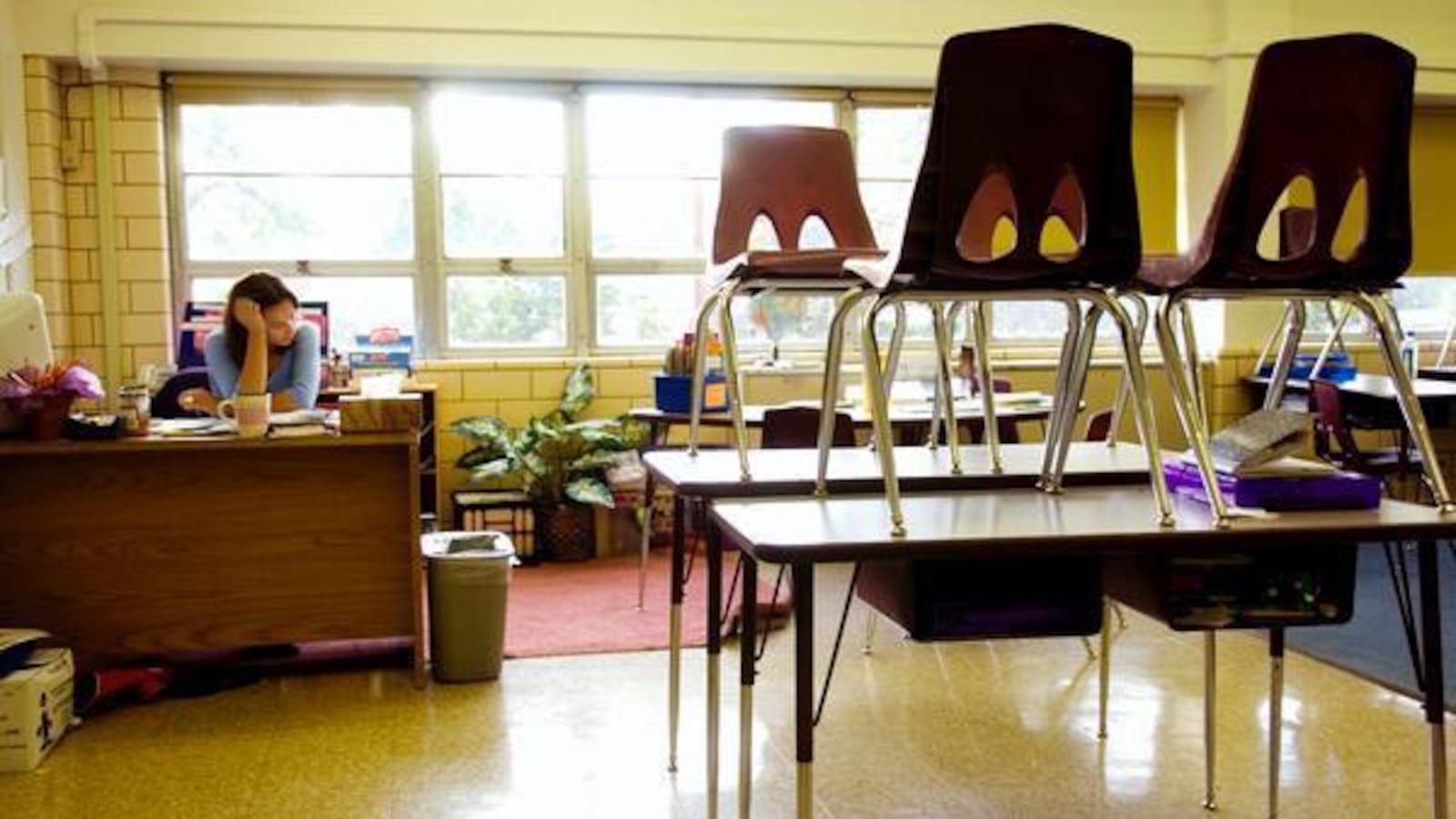With Michigan’s school shutdown dragging into its second week, Sen. Majority Leader Mike Shirkey held a conference call Wednesday morning to try to untangle a knot of education issues raised by the state’s ongoing coronavirus outbreak.
He asked the bipartisan group of lawmakers and education advocates to weigh in on several questions. Will school staff get paid? Are state tests going to be canceled? How can we ensure that high school seniors are allowed to graduate?
And, crucially: Will schools be forgiven for the days they’ve missed during the closure?
“Disaster relief is pretty much what we’re doing,” said Bill Miller, executive director of the Michigan Association of Intermediate School Administrators, who was on the call. “There were no answers, there were no decisions made — it was a listening session for the most part.”
Some in Michigan’s school community say the answers are not coming quickly enough.
In a recent letter to every staffer of Michigan’s largest school district, Detroit Superintendent Nikolai Vitti said he’s not sure he can continue to pay teachers after April 10 and hourly staff after April 3 without answers from the legislature about how it will handle days missed due to the closure.
“The legislature needs to decide what it will do” about the missed days, Vitti said. “Once they make those decisions then we can make decisions.”
With schools not expected to reopen until April 14 at the earliest, they will fall far short of the state requirement to hold classes for 180 days per year. If lawmakers don’t intervene, schools could lose funding. Teachers are still being paid as they scramble to continue supporting their students from afar.
Vitti is not the only superintendent worried that the upheaval will blow a hole in his district’s budget. Some are concerned that lawmakers will require districts to make up for lost time without allocating extra funds to pay teachers for working into the summer.
“If we do have to make up days at the end of the year, then we’ll have to address additional payments to school employees,” said Chris Wigent, executive director of the Michigan Association of Superintendents & Administrators. “It’s a double dip that was never put in anyone’s budget for this year.”
A spokesperson for Shirkey, Amber McCann, said he is “actively working to develop short and long-term actions to address” coronavirus-related education concerns.
Rep. Pamela Hornberger, the Republican chair of the House Education Committee, joined the call and said she hoped to have some answers by next week.
“I don’t think anyone in this situation is out to cause any more stress or harm to schools by saying you have to make up these days but we’re not going to give you money,” she said. “There’s no one in Lansing saying that. We’re trying to at least have some clarity for superintendents and districts by Monday.”
The debate to extend the school year or forgive missed days is familiar in Michigan, which faced similar questions last year after an unusually harsh winter closed some school districts for more than two weeks. While some of the missed time was eventually forgiven, the deal was nearly derailed over funding issues, with lawmakers disagreeing over whether to pay hourly workers for those days.
“I don’t hear anyone saying that” districts shouldn’t be fully funded through the coronavirus crisis, said David Hecker, president of the American Federation of Teachers Michigan, a teachers union. He also was on the call.
“There’s a difference between no one saying that and a firm decision being made. We need to know with certainty.”
Hecker said that all school staff should be paid for their work.
With COVID-19-related unemployment claims skyrocketing in Michigan and widespread expectations of an economic downturn, there may be reason to worry about the state’s ability to fund schools, said Peter Spadafore, a spokesman for the Michigan Association of Superintendents & Administrators.
“At this point there’s been no funding source identified to tack days on to the end of the year, and what’s happening now with revenue is uncertain given what this pandemic may do to our economy,” he said.
Legislators were scheduled to take up school-related issues this week, but the session was canceled amid concerns about the spread of the coronavirus.
“The Legislature is derelict in its duties, quite honestly,” said Erika Geiss, a Democrat on the Senate’s Education Committee. “I’m very disappointed that we left Lansing last Tuesday without having voted on” COVID-19-related school issues.
Hecker, the union leader, said the conference call on Wednesday marked progress.
“We appreciate Senator Shirkey doing the call to bring everyone together,” he said. “We certainly have some political differences, but at times like this, everyone has got to come together.”


